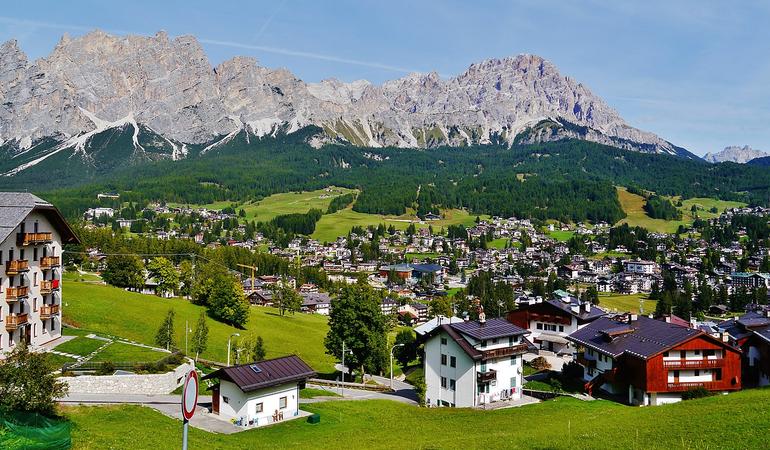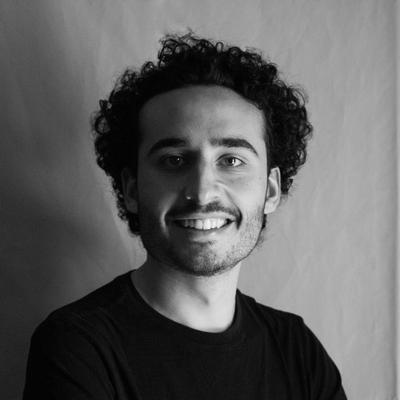
Olimpiadi Milano-Cortina 2026, affitti alle stelle. Anche per i volontari


14 giugno 2024
On 23 May 1992, the hands of Francesca Morvillo's watch stopped at 5.58pm. That was when Cosa Nostra detonated 500 kilos of TNT on the motorway at kilometre 5 of the A29, at the Capaci-Isole delle Femmine junction, near Palermo, in Sicily. In an unencrypted communication from the police headquarters, a policewoman, who arrived on the scene a few minutes after the bomb attack that gutted the motorway, says 'We have the lady's watch'. A few hours later, in a second communication, she adds 'The wife of the well-known personality is also deceased'. The narrative of the wife without a story begins here and only in recent years has changed, giving Francesca Morvillo, magistrate to Giovanni Falcone's wife, the value she would always have deserved: 'For a long time there was no space to dedicate to her memory in official commemorations,' her brother Alfredo Morvillo, a former judge at the Palermo court, explains to lavialibera . Something began to change only in 2017. Since then, books have been dedicated to her, such as Il mio silenzio è una stella written by Sabrina Pisu (Einaudi, April 2024), and a documentary on Rai Storia.
For more than thirty years, hers remained an invisible figure, trapped immediately by the public narrative in the definition of 'wife of'
Until a few years ago, the story of the Capaci bombing entrusted the leading role to Judge Giovanni Falcone and the men of his escort, Antonio Montinaro, Rocco Dicillo and Vito Schifani. In the background was the figure of a woman who had lost her life through a dramatic fatality. Hers has long been a name to be mentioned quickly and only on the anniversaries of the attack. The chronicles did not deal with her, letting interest in the prestige rightly embodied by the judge who had guessed before others and decapitated Cosa Nostra with the maxi-trial in Palermo, the largest criminal trial held anywhere in the world, prevail. For more than thirty years, hers remained an invisible figure, trapped immediately by the public narrative in the definition of 'wife of'.
Yet Francesca Morvillo was a magistrate of great professional depth, capable of combining the demands of justice with the rights of the accused. "I had given myself an explanation for this silence, which helped me not to polemic, and that was that the enormity of Giovanni Falcone's character and the greatness of what he had done with his work was such that it covered everything around him," says Alfredo Morvillo.
The fight against transnational organized crime, an urgent matter
Little was known about her, except that she was a magistrate like her husband. Among the many news articles on the Capaci massacre published in newspapers on 24 May 1992, only one article in L'Unità recounted any details of her career.
For decades, her memory has remained tied to her family role, disregarding her human qualities and professional abilities. All were comfortably supported by a society with strong conservative and patriarchal legacies in which until 1963 the toga was only for men, the only ones deemed fit to judge fairly. It took 15 years after the Constitution came into force for the principle of gender equality in access to the judiciary to be affirmed. Women were not 'suited for the difficult art of judging. This requires great balance and sometimes balance is lacking for even physiological reasons,' said the Honourable Antonio Romano (Christian Democrat Party) at the Constituent Assembly on 11 November 1947.
Francesca Morvillo was one of the first female magistrates in Italy and the only one to be murdered by the Mafia: on that 23 May she was returning to Palermo from Rome where she was serving as a commissioner for the judiciary competition. Extracted alive from the Capaci inferno, she survived five hours before her heart stopped beating. She was 46 years old.
At the end of the 1960s, the young Palermo woman had passed competitions to enter the magistracy. Her first assignment was in Agrigento, and then she returned to the capital in 1971: 'For many years my sister was the prosecutor for minors in Palermo, because she was the only deputy,' her brother, five years younger, remembers her. 'All the work, criminal and civil juvenile law, she did alone. She deeply loved what she did and for this enormous commitment she was loved by everyone'. She had succeeded in making her mark with her vision of the concept of juvenile justice when a repressive code of fascist heritage, only punitive, was still in force.
While maintaining her role as deputy public prosecutor, she adopted an innovative method towards the youngsters, she managed to make them understand that she was not there to judge and punish but to understand first of all and then to try to help, favouring paths to recovery. A sensitive, humane, conscientious approach matured after years of militancy in the places of cultural poverty in Palermo, in the working-class neighbourhood of Zisa where as a volunteer she taught after-school afternoons to the children of prisoners.
A convention against transnational crime
" 'The men had been killed in the performance of duty, their deaths were heroic, worthy of being commemorated, while that of the woman, although a magistrate and a victim of the same mafia violence, occurred for a private reason: she was simply accompanying her husband"Giovanna Fiume - Historian
She was, in her own way, a revolutionary and courageous woman, who chose to tread unusual paths towards autonomy and freedom. Her emancipation came through an excellent course of education, which she tackled with rigour and seriousness, demonstrating even then that she had a great sense of justice, keeping away from the widespread practice of recommendations. At the faculty of Palermo, her city, at the age of 21 she had obtained a degree in Law with 110 cum laude, discussing a thesis in which there were already all the elements that would mark her work as a magistrate, her concern for man and her great faith in justice and law as instruments for the realisation of democratic values. "A cutting-edge thesis for that period", defines Paola Maggio, professor of criminal procedural law, who in 2016 drew the attention of the Palermo university - which had only ever celebrated the figures of Giovanni Falcone and Paolo Borsellino, both graduates of that faculty - to the former student.
This research by Paola Maggio then gave rise to a study conducted together with historian Giovanna Fiume and writer Cetta Brancato, which resulted in the publication of the volume Non solo per amore (Treccani, 2022). The sense of this volume,' explains Giovanna Fiume, 'lies in wanting to recognise her public role, and not just her private role as Giovanni Falcone's wife, starting from her value as a jurist and magistrate and the importance of the trials she helped to celebrate, such as the one that condemned Vito Ciancimino for crimes linked to the mafia's entanglements with the Palermo municipal administration. This work by the three authors has also made it possible to give Francesca Morvillo back her rightful place in history: 'In the moments after the assassination attempt, the reconstructions almost unconsciously took on a gender connotation,' the historian continues. 'The men had been killed in the performance of duty, their deaths were heroic, worthy of being commemorated, while that of the woman, although a magistrate and a victim of the same mafia violence, occurred for a private reason: she was simply accompanying her husband. To put it frankly, the image of Francesca Morvillo has struggled to emerge from the cone of shadow where the undoubted greatness of the figure of Giovanni Falcone, the tragic self-sacrifice of the men of the escort and, finally, the political weight of the massacre in question have placed it'.
Alfredo Morvillo also recalls the episode that marked a change in the common narrative: 'In 2017, with some colleagues from the National Association of Magistrates of Palermo, we decided to pay homage to Francesca. On that occasion, the poetess Cetta Brancato wrote a poem, succeeding with words in a great work of remembrance. Since then, a new course has begun in which we talk about Francesca'.
In 2022, the commemorations of the thirtieth anniversary of the Capaci massacre gave new opportunities to rediscover the figure of the Palermo magistrate, such as the publication of the novel Francesca. Storia di un amore in tempo di guerra, by Felice Cavallaro and the Rai Storia documentary Francesca Morvillo, donna di legge.
"Francesca Morvillo and Giovanni Falcone shared the same ideals and way of life"Alfredo Morvillo - Francesca's brother
For Alfredo Morvillo, his sister and Giovanni Falcone, who married in 1986, were united not only by feelings: 'They shared the same ideals and way of life. She was always close to him even though she was aware of the risks Giovanni was running and consequently her. She never accepted the possibility of being away from her husband for security reasons. At the time of the failed assassination attempt on Addaura (when some sticks of explosives were found not far from the beach house on 21 June 1989, ed.), Giovanni had to struggle to convince Francesca to stay a few days alone in the house in Palermo while he, to give a sign of strength, wanted to stay in the place where the assassination attempt had been prepared'. Francesca Morvillo and her husband were buried together in the Sant'Orsola cemetery until 2015, when Giovanni Falcone's body was taken to the church of San Domenico, which houses the coffins of other illustrious personalities of Sicily. A year later, his body was moved to the Rotoli cemetery, in an empty chapel.
The magistrate's story has also been told at school and to the youngest, through books such as Maggio a Palermo - Una storia per Francesca Morvillo by Gilda Terranova, published by Einaudi Ragazzi. Fiume gives us an image linked to the presentation of his book in the primary school of Corleone, Totò Riina's town, where the street artist Andrea Buglisi created a mural dedicated to Morvillo: 'It was exciting to see all the girls wearing a yellow headband like the one that stands out in the black and white image depicting Francesca's young and smiling face. Attention and care towards this story should also be nurtured by the school, an institution that trains in critical knowledge and the construction of a shared memory, in a word the exercise of freedom of thought'.
La tua donazione ci servirà a mantenere il sito accessibile a tutti
La tua donazione ci servirà a mantenere il sito accessibile a tutti